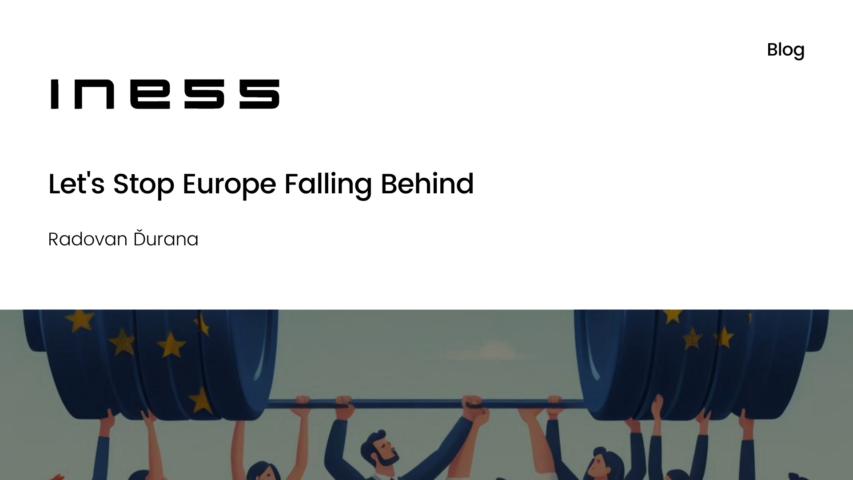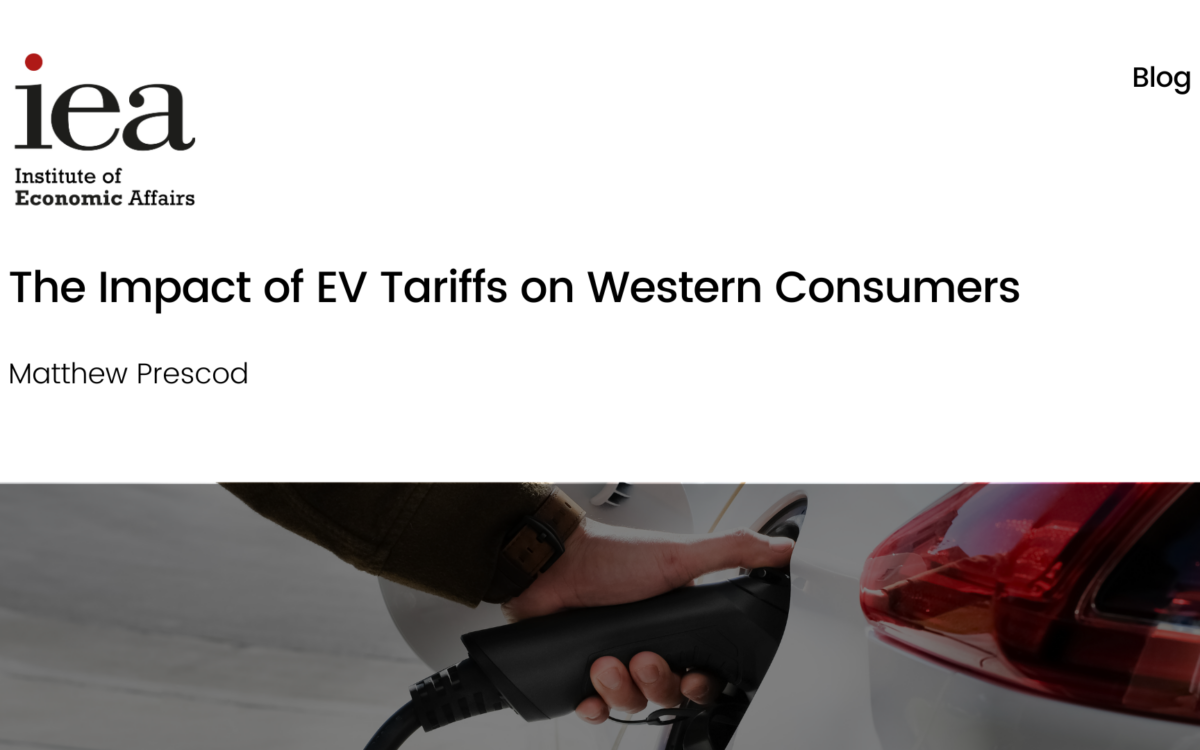Let’s Stop Europe Falling Behind

Let's Stop Europe Falling Behind
Radovan Ďurana // 3 June 2024
When Slovakia joined the European Union (EU) in 2004, the EU accounted for 26 per cent of the world's gross domestic product (GDP), just behind the US at 28 per cent. During this time, China was beginning its meteoric economic rise, accounting for four per cent of the global market. This year, the EU will contribute 17.3 per cent of the world’s GDP, while China is expected to account for 16.9 per cent. This is probably the last year when the EU’s market share will be higher than that of China. In turn, China will very likely move to second place in the economic world order after the hegemon USA, which still accounts for 26 per cent of world output.
Officials in Brussels would prefer to ignore these figures. It has been clear for over ten years that the Chinese market, with its 1.4 billion strong consumers, will eventually catch up with the EU. But why is the US, which is less populous than EU by a quarter, outpacing the EU so rapidly?
The Brussels archives are full of analysis and justification. In cooperation with the European Policy Information Center (Epicenter), the Institute of Economic and Social Studies (INESS) weighed in with its recent analysis, ‘Market Force: Revitalising the Single Market for the Next 30 Years’. The Single Market is considered the most powerful tool for economic growth at the EU's disposal. Former Italian Prime Minister Enrico Letta wrote about how to improve the single market’s performance in a recent report commissioned by the European Commission (Letta, 2023).
However, I am afraid that complaining about bureaucratic burdens, the complexity of setting up companies, low labour mobility, and slow digitalisation will not eliminate the EU's economic backwardness.
The fundamental problem is cultural. I do not mean this in an artistic sense. It is a problem concerning the EU's culture and values. What was once the cradle of capitalism has been significantly transformed over the last 30 to 50 years. Fewer and fewer people want to do business – profit has taken on an undesirable undertone, and the leitmotif of public debate is protection. Consumer protection, protection of the employee, protection of students from unpleasant facts, protection of citizens from their assumed inability to control their eating, drinking and smoking habits, and last but not least, protection of the climate and the environment. We have given up on growth; we just want to redistribute and conserve. Additionally, using the ‘Brussels effect’, we want to extend this policy approach beyond the EU's borders.
Take, for example, the evergreen issue of ‘bureaucratic burden’. Reducing it is a noble goal in theory, but in practical policy, reducing the regulatory burden does not happen. A Single Market that enables stronger growth is unfortunately not a political priority for either the European Commission or member states. On the contrary, it has become an excellent platform for the widespread dissemination of a protectionist philosophy. On the one hand, the European Commission will put pressure on member states to reduce the regulatory burden. In response, member states will digitise some statistical reports and ensure companies have less administration.
On the other hand, however, the Commission will also issue a directive aimed at reducing the gender pay gap. This requires dozens of new statements and reports. The bureaucratic burden is back, but this would be the least of the businesses problems. After all, protectionist legislation doesn't just generate unnecessary reports; it cuts directly into the running and management of companies.
The European Commission has published analyses indicating that increased participation of women in management, increased participation of disabled persons in the workforce, reduced working hours, mandatory minimum wages, and enforcement of employment rights for platform workers have a positive impact on economic growth. Acting on this evidence, it has issued directives encouraging member states to pursue these goals. However, the Union's miserable growth indicates that these measures are not so much opportunities as obstacles to growth.
In the name of consumer protection, both the Union and member states are adopting legislation that is holding back innovation and causing the EU digital technology sector to fall desperately behind the US and Asia. The EU was the first geographical entity in the world to adopt a legislation on artificial intelligence, even though it only plays an observer role in its development. This is based on the idea that good regulation will create room for innovation. But the market reality is the opposite. Innovation usually arises where regulation does not yet reign.
According to the Commission, one of the biggest achievements of the Single Market is the GDPR law. This is a law that, while increasing consumer protection, also reduces sales (Johnson 2022) and profits for companies, making the EU market less attractive for new investments.
But at the heart of all these policies is the strange quest for leadership in decarbonisation. It is an area of intervention that the EU has invented, competes in, and understandably, wins. But the cost of this victory is already being reflected in weak economic growth and in European businesses shifting their investments overseas. Germany's industrial production is at the level it was 15 years ago; the chemical industry has already shrunk to the size it was in 1995.
Being the world leader in carbon pricing may seem noble. Decarbonisation is certainly necessary. However, the pace that the EU has chosen is costly and risky. Deploying solar panels imported from China will not make us richer. On the contrary, it poses opportunities for non-European export-oriented countries to postpone their net zero targets by five to ten years and use this time to get ahead in the market-share race.
As long as Europe is dominated by protectionist policies aimed at minimising consumer risk and reducing citizen responsibility, and as long as the EU competes blindly for leadership in decarbonisation, no changes to the single market can deliver significantly higher economic growth. In such a cultural setting, improving the business environment will have no effect. The US economy will continue to outpace the EU, and the EU's share of the world GDP will continue to decline. Sadly, a large part of the EU population may even applaud this.
EPICENTER publications and contributions from our member think tanks are designed to promote the discussion of economic issues and the role of markets in solving economic and social problems. As with all EPICENTER publications, the views expressed here are those of the author and not EPICENTER or its member think tanks (which have no corporate view).



